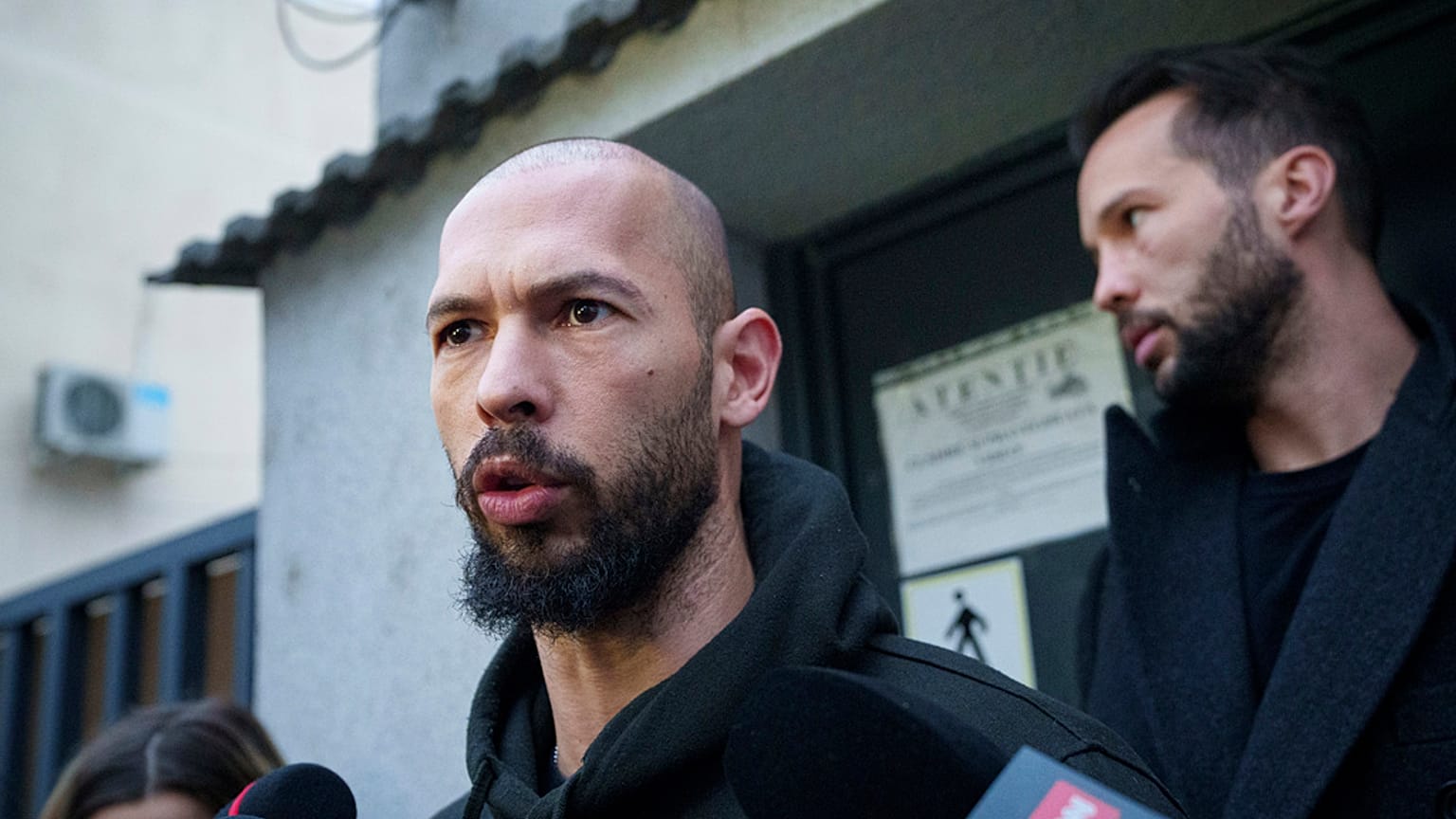While the controversial influencer could be temporarily out of the game because of his legal troubles, what will happen to the ideas Tate championed?
Legal troubles continue piling up on Andrew Tate, the former kickboxing world champion, turned social media influencer who once proudly proclaimed himself a “misogynist”.
 ADVERTISEMENT
ADVERTISEMENT
 ADVERTISEMENT
ADVERTISEMENT
On Monday night, Tate and his brother Tristan were detained in Romania and handed an arrest warrant issued by UK authorities over allegations of "sexual aggression" in a case dating back to 2012-2015.
The brothers - who are both dual UK and US citizens - have rejected the charges.
The British civil case against Tate is just the latest legal blow to the social media influencer, however. In December 2022, he was arrested along with his brother and two Romanian women over charges of rape, human trafficking and forming a criminal gang to sexually exploit women.
Though formally indicted by Romanian prosecutors on all four charges, Tate continues to deny any wrongdoing.
Tate, who currently counts 8.9 million followers on X, has become something of a poster child for the manosphere - an umbrella term referring to an interconnected network of websites, blogs and online communities where groups of men promote toxic masculinity and misogyny.
Their goal is often to fight against progressive ideas like gender equality.
“He really captured the imagination at one point, because he went viral extremely quickly and really managed to suck men into his worldview,” Cécile Simmons, research manager at the London-based Institute for Strategic Dialogue (ISD), told Euronews.
“But the worldviews that seduce these men are not going away with him.”
A story that began long before Tate
While misogyny has deep roots in human history, the ideology has recently found fertile ground online, where often disgruntled men can bond over their frustration and anger at the world and women.
“The manosphere, a collection of online misogynistic communities, has been active for a long time online, though there’s been more awareness of them since 2016, when Donald Trump was elected,” Simmons said.
“In recent years, influencers have really contributed to the mainstreaming of misogynistic ideas, and Andrew Tate is one of the biggest influencers,” she added.
“What characterises him is how quickly he amassed the followers he got, and he did so by combining misogyny and self-help talk, building this whole commercial enterprise.”
Tate is seen by many observers as having capitalised on online misogyny and bringing it to the mainstream. His pervasive influence continues, especially among young boys, despite his legal problems.
In 2022, the same year that Tate was arrested in Romania, the influencer was deplatformed on most social media over his toxic messages about women. While he remains banned on YouTube, TikTok, Instagram and Facebook, his profile has been reinstated on X by Elon Musk and is currently active.
But even when he was banned on all popular social media, his content continued circulating online, Simmons said, citing a 2022 report which found that “his fans were still sharing his content and reposting his stuff.”
‘Plenty of Andrew Tates’
The troubles of Andrew Tate might be a blow for the manosphere, but it won’t likely be its end.
It might, in fact, be an opportunity for other “red pill” influencers to rise to the type of mainstream popularity he enjoyed. Red pill influencers are those who believe that feminism is harmful to men, that men are victims of a woman-centred world and that they are entitled to sex, the ISD writes.
The kind of ideology championed by Tate is becoming ever more mainstream, according to Simmons.
“Everyone is so focused on Andrew Tate because he was so big for a while, but while we look at him we forget that there are loads of other people out there with big platforms who are peddling quite problematic ideas,” she said.
Feelings of frustration and anger felt by men around the world over their perceived new role in the world, which were used by Tate to bolster his ascent on social media, haven’t gone away, Simmons continued.
“What has to be said is that there are plenty of Andrew Tates out there. They might not say exactly the same things, it might not be as violent, but there are a lot of influencers who say something similar. That women who go to the gym are promiscuous, that men should control their women.”
“I think there’s a lot of resentment among young men, and I think that there are other influencers who now are trying to tap into that same discontent that Tate used,” she added. “Other people are ready to weaponise those feelings. And we need to find solutions to address this.”














